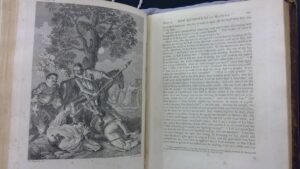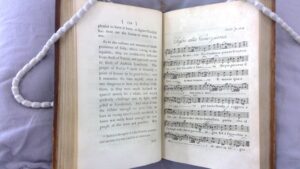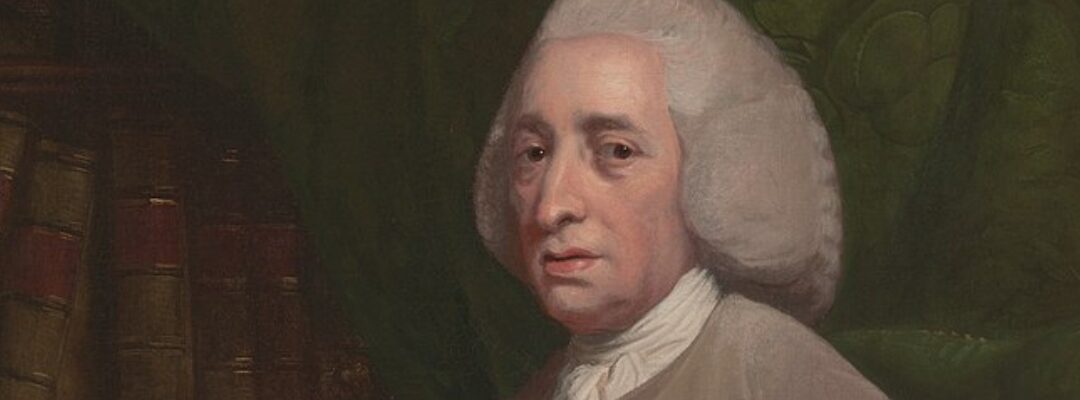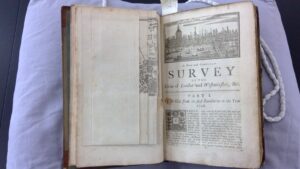
Miguel de Cervantes Saavedra, The History and Adventures of the Renowned Don Quixote, trans. by Tobias Smollett (London: A. Millar et al., 1755), [S.L.] I [Smollett – 1755]
Smollett as translator
Miguel de Cervantes Saavedra, The History and Adventures of the Renowned Don Quixote, trans. by Tobias Smollett (London: A. Millar et al., 1755), [S.L.] I [Smollett – 1755] fol.
Smollett was as a translator as well as an author. Most of his translations were from French: Alain Le Sage’s Gil Blas and Le Diable boiteux; Fénelon’s Télémaque; Voltaire’s ‘Micromegas’ and a collection of economics essays. Don Quixote, a labour which occupied Smollett from 1748 until 1755, is his one venture into Spanish. Thomas Shelton (ca. 1620), Peter Anthony Motteux (1700), and Charles Jarvis (1742) had all translated Don Quixote into English already, and Smollett made use of their work while producing a spirited translation of his own. Smollett’s rendering follows a median path between Jarvis’s more literal and Motteux’s freer translations, both of which found more favour and were reprinted more frequently than Smollett’s.
Some geographical context
A New and Compleat Survey of London (London: S. Lyne, 1742), [B.L.] 1742 [New]Although Scottish by birth and revealing a certain Scottishness in some of his works, Smollett lived in London from 1739 onwards, and in the 1740s wrote a couple of satires on London life. Shown here to put Smollett’s London in context is an anonymous composition, one of several overviews of the eighteenth-century metropolis. It includes maps and provides alongside the history of London current accounts of its various districts and of its politics, commerce, trade, and educational establishments.

Giuseppe Baretti. An Account of the Manners and Customs of Italy: With Observations on the Mistakes of Some Travellers, with Regard to that Country (London: T. Davies; and L. Davis and C. Rymers, 1768), [G.L.] 1768
When Smollett produced Travels through France and Italy (1766) on the basis of his travels from 1763 until 1765, he was writing within an established genre, as Baretti’s book shows. In 1766 the London surgeon Samuel Sharp had published Letters to Italy: Describing the Customs and Manners of that Country in the Years 1765, and 1766. Joseph Baretti, an Italian, wrote his account to correct what he saw as Sharp’s inaccurate and superficial descriptions and xenophobia following a short visit to Baretti’s native land. Sharp retorted in print, and Baretti wrote back again. Smollett, like Sharp, was criticised for an unflattering portrayal of the people he encountered on his travels.


